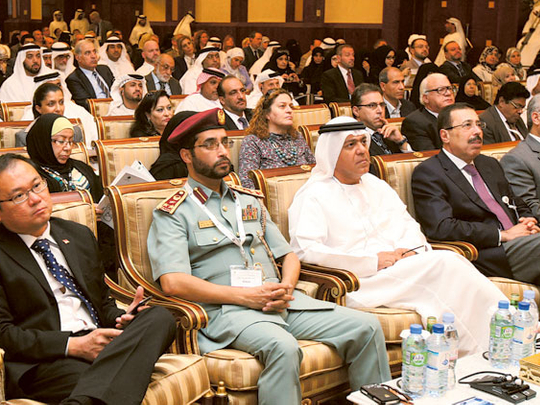
Abu Dhabi: E-learning is necessary as a tool to help protect the national security of the country, it was suggested at an education conference in Abu Dhabi Wednesday.
“The UAE has to revolutionise its education system to produce technology, reduce reliance on the West and maintain our national security,” Dr Mansoor Al Awar, Chancellor of the Hamdan Bin Mohammad e-University, Dubai, told the third annual conference of the Emirates Centre for Strategic Studies and Research (ECSSR), entitled ‘Information Technology and the Future of Education in the UAE’.
Al Awar, cited former US Secretary of State Condoleezza Rice’s decision to get State Department computers replaced with more secure ones after it was found that suppliers of the computers planted spy chips in them.
Stressing that hard and boring subjects can be made easier, more interesting and appealing with e-learning, Al Awar also suggested that the UAE has to disseminate the culture of smart and e-learning and that information technology be learnt thoroughly in schools.
He said the UAE’s educational process must be re-engineered so that learners are empowered to manage their own learning.
Dr Jamila Sulaiman Khanji, advisor of research and studies at the Family Development Foundation, agreed and said people learn in different ways.
“E-learning means learners can have access to a wide range of learning resources and in this way each learner can have an individualised experience, where they access the learning that is best for them.”
Professor David Hung, associate dean in the office of educational research at the National Institute of Education, Singapore, said learning is a social activity, and e-learning means that powerful and enduring learning experiences can be achieved, not just through content, but through the use of online communities and networks.
“Learners are encouraged to communicate, collaborate and share knowledge and in this way, e-learning can support learning through reflection and discussion.”.
Dr Rana Tamim, assistant professor at the College of Education, Zayed University, Dubai, stressed e-learning means that learning no longer needs to be a passive experience, with learners sitting in front of the teacher - e-learning makes learning an active experience.
Dr Abdul Latif Al Shamsi, managing director of the Institute of Applied Technology, added: “For instance if you want to find out about sound waves, you could work through the interactive demonstration in an e-book about physics on your iPad.
“You don´t just watch how sounds are made and the wave lenghs but you are involved in it yourself.”
Academics at the conference also argued that e-learning is also helping to embed learning within work processes, as organisations begin to recognise that learning is not something that only takes place in a classroom.












